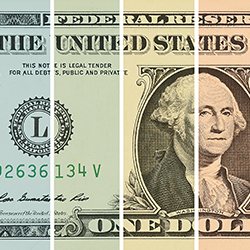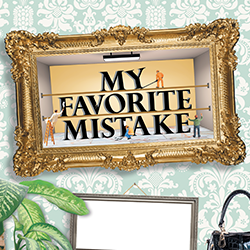|
REGISTRATION REQUIRED
exhibiting 101

Candy's Commandments
Twenty-five years into my career, I've learned that some rules are not meant to be broken. Here are 10 of them.
OK, I admit it: I feel old when I say that I've been managing exhibits for more than 25 years. But I'll also admit that I'm still learning. At every show, I learn something new, slap my forehead, and think, "I should have thought of that before." But for those exhibiting rookies who don't want to go through the pain of learning the hard way, I'd like to share 10 of my own exhibit-marketing commandments, along with some of the "aha!" moments that made me develop them in the first place.
I Thou Shalt Always Read the Exhibitor Services Manual Yes, it can be boring, but by absorbing what's in the exhibitor services manual, you can avoid big problems on the show floor. Every trade show is different, and each has its own set of regulations. So even if you've successfully executed hundreds of trade shows, you can't sidestep this all-important task. There are exhibitor regulations published by show management, the convention center or event venue, the fire marshal, and the structural engineer that dictate what's allowed on the show floor. And when it comes to these restrictions, ignorance is neither bliss nor a justifiable defense. Violate just one of them, and you can risk having your entire exhibit shut down and hauled away. So familiarize yourself with the regulations you'll be facing long before you arrive in the show's host city. II Thou Shalt Always Have a Contingency Plan If something can go wrong at a trade show, it will. And I should know, because some crazy things have happened to me. Did I plan for my truck driver to have a heart attack on the way to the trade show and leave my exhibit by the roadside? Did I anticipate a client's much-promoted product being "killed" the week before a show, leaving us with erroneous graphics? No, but fortunately I had a Plan B in place for both of those worst-case scenarios. Granted, you can't predict every-thing that could possibly go wrong and create contingency plans for every single scenario. But thinking through the most likely mishaps and how you could resolve them will put you one step ahead of the game. III Honor Your Allies Develop relationships with the internal and external stakeholders on your show team. In addition to your exhibitor-appointed contractors (EACs), you'll be working with vendors contracted by the show venue, as well as general service contractors (GSCs) and subcontractors selected by show management. Be courteous, helpful, and responsive, as these people can become your most important allies in times of trouble. The next tier of relationships includes the industry peers you meet while on the show floor, such as the dock and material-handling staff, on-site contractors' service-desk personnel, floor managers, electricians, installation-and-dismantle crew, and even exhibitors in neighboring booth spaces. Being friendly goes a long way. In fact, I bring bags of homemade cookies to give to everyone on the show floor during setup. In return, union stewards have looked the other way as I've performed tasks such as vacuuming a mess in my booth. IV Thou Shalt Always Build in a Budget Buffer Since there are so many unknown variables that can impact your expenses when planning for a show, it's highly doubtful that you'll ever be able to budget with 100-percent accuracy. Protect yourself from budget overruns and add at least 10 percent to your best-estimated budget for emergencies and last-minute opportunities or requests. That budget buffer has saved me from going over my allotted budget on more than a few occasions. At a recent show, for example, I used that extra cash to rent a length of truss after I discovered there weren't hooks on the venue's ceiling from which to hang our sign exactly where we wanted. Because I had a slush fund, I was able to solve my problem on the fly without breaking the bank. V Thou Shalt Ask for a Discount I've whittled down the cost of countless products and services just by asking vendors if they offer any discounts. The markdowns I've received have included special pricing on package deals, price cuts for ordering before a certain dead-line, special fee breaks for nonprofit organizations, and even discounts for paying with cash or check instead of a credit card. There's no harm in asking for a discount. You're simply looking out for your company's best interests. And you'll be surprised how often just asking actually pays off. VI Remember Deadlines (And Pad Them Accordingly) After years of chasing the deadlines published in the exhibitor services manual, I had an epiphany: Why wasn't I building in a few extra days to make sure I garnered all the available discounts and avoided last-minute rush charges? Now, I push back deadlines by three to five days, and communicate those deadlines to internal stakeholders and vendors. I haven't missed a discount since. VII Thou Shalt Always Keep a Paper Trail Keep copies of all your contracts, payment confirmations, orders, and change orders. Having this paperwork can be a lifesaver on site during install when things aren't happening according to your order. You can also use it to audit your invoices and catch erroneous charges, which happen more often than you think. A few years ago, I was charged drayage for the weight of my trailer and exhibit freight, not just the freight, when a service-desk rep picked the wrong number off of the certified weight slip. Another time I was charged more for a rented coffee cart on my bill than was stated on the original proposal, which turned out to be a miscalculation based on a change of sales tax. I was able to fix both errors by presenting my original paperwork. Also, always have 24/7 contact numbers and email addresses for your vendors. Together with copies of your original agreements, this info can help you efficiently resolve issues that could otherwise result in unexpected charges – and gray hairs. VIII Thou Shalt Always Include Your Staff Your exhibit staff is your first line of defense, so communicate your vision for the exhibit program, and outline each individual's role during pre-show meetings. At the show, plan a booth orientation and sales-training review on boothmanship skills and etiquette. Appoint a booth captain that will be present at all times to answer any questions that arise. Conduct daily debriefing sessions after each booth-duty shift ends (or at the end of the day) to get feedback on what's working and what needs improvement, and use that input and make any necessary midcourse corrections. For example, if your staffers are struggling to keep up with badge swipes, add more lead-retrieval systems or adjust the staffing schedule to accommodate fluctuations in traffic. Asking for and acting upon staffer feedback is crucial. Your exhibit staff is what attendees will remember after the show is over, and anything you can do to improve staff morale and productivity will also enhance your company brand and memorability. Here are some simple things that go a long way to keep your staffers happy: Assign reasonable booth-duty shifts (no more than two hours without a break), have healthy snacks and bottles of water available in the exhibit for easy access throughout the show, order box lunches if your schedule doesn't allow adequate lunch breaks, and have vitamin C drops, cough drops, hand sanitizer, and tissues on hand. In addition to those basics, I always have extra foam insoles for shoes and local maps of nearby restaurants, drug stores, transportation hubs, etc. so staffers can find their way around. IX Honor Your Team Members My dad used to tell me that if I didn't toot my own horn, nobody else was going to toot it for me. And he was right. But what he failed to mention was that I might not always be a one-woman band. True, sometimes it feels like you're in it alone. But you're likely part of a team of individuals who make or break your company's exhibit program, and I can't say enough about thanking all those involved for a job well done. Thank your internal staffers for their participation, and call out any above-and-beyond heroics that made your show a success. In addition, thank individuals outside of your company who excel at making you, and your exhibit, look good. Toot the horn as loudly and as often as possible to both your fellow colleagues and their supervisors, especially when your trade show program has a big win. Exhibit marketing is a team effort, and I've found that giving praise where praise is due keeps staffers motivated, enthused, and on your side. X Never Stop Learning Don't be afraid to try some-thing new at every trade show that you attend and learn from your mistakes. You can continue to hone your company's exhibit-marketing program by reviewing your pre- and at-show notes, surveying your booth staffers, and issuing a post-show analysis that reviews the highlights and lowlights of that particular event, along with recommendations for future shows. Some of the best improvements that I've made to my programs over the years have come by way of trying something new, usually as a result of those staff recommendations. Most exhibit managers are lifelong learners, likely because we have to continue learning to stay ahead of industry trends. And though you can pick up your fair share of exhibit knowledge on the job, be open to learning opportunities off the show floor as well. You can attend classes, read industry publications, participate in associations, join discussions via LinkedIn groups, or even find a mentor off whom you can bounce your ideas. Whatever you do, don't stop learning, accept advice from those who have more experience, and never be afraid to ask questions. E  Candy Adams
Candy AdamsCTSM, CEM, CMP, CMM "The Booth Mom," is an independent exhibit project manager, trainer, speaker, consultant, and an Exhibitor Conference faculty member. CandyAdams@BoothMom.com
|
|
|
||||||||||||||||||||||||||||
|
|
||||||||||||||||||||||||||||
|
TOPICS Measurement & Budgeting Planning & Execution Marketing & Promotion Events & Venues Personal & Career Exhibits & Experiences International Exhibiting Resources for Rookies Research & Resources |
MAGAZINE Subscribe Today! Renew Subscription Update Address Digital Downloads Newsletters Advertise |
FIND IT Exhibit Producers Products & Services All Companies Get Listed |
EXHIBITORLIVE Sessions Exhibit Hall Exhibit at the Show Registration |
ETRAK Sessions Certification F.A.Q. Registration |
EDUCATION WEEK Overview Sessions Hotel Registration |
CERTIFICATION The Program Steps to Certification Faculty and Staff Enroll in CTSM Submit Quiz Answers My CTSM |
AWARDS Exhibit Design Awards Portable/Modular Awards Corporate Event Awards Centers of Excellence |
NEWS Associations/Press Awards Company News International New Products People Shows & Events Venues & Destinations EXHIBITOR News |
||||||||||||||||||||
|
||||||||||||||||||||||||||||






